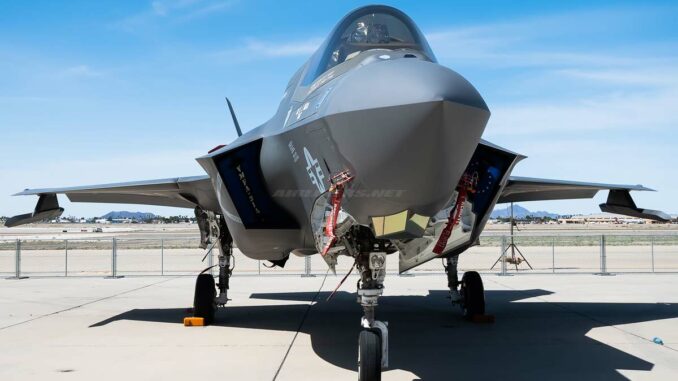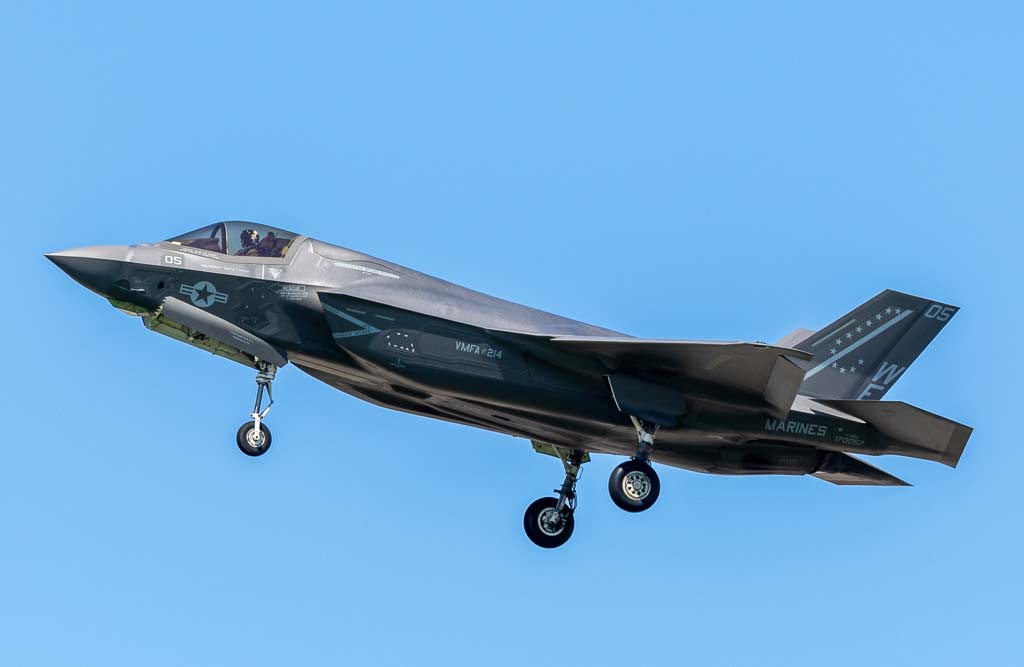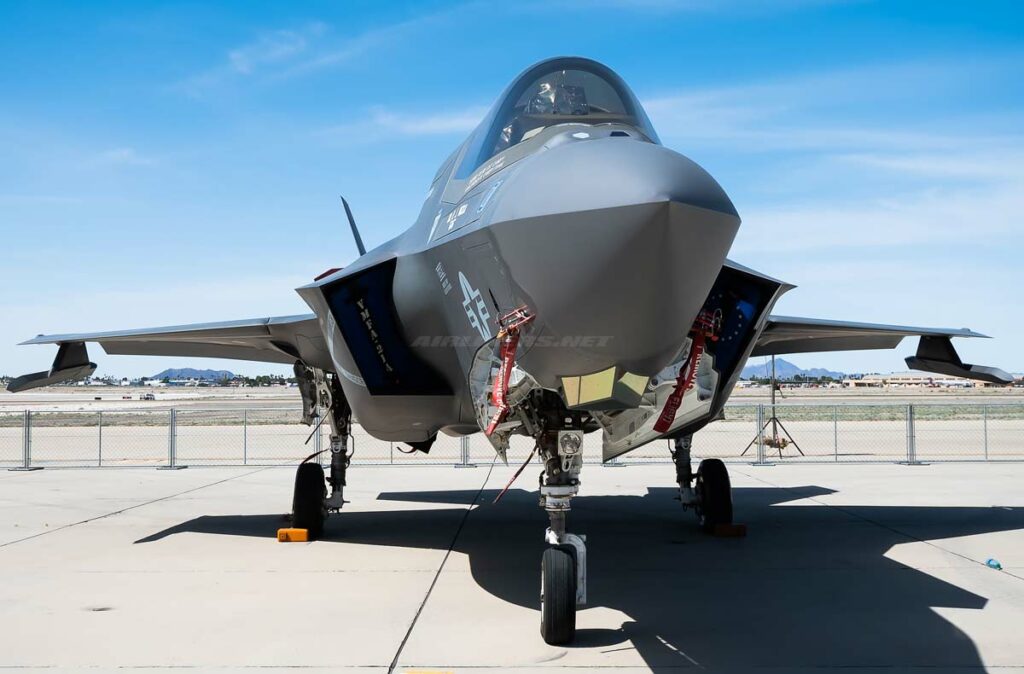
Lockheed Martin is facing a shortage of space to store undelivered F-35s due to upgrade delays. Impact analysis and solutions.
In brief
Lockheed Martin is experiencing difficulties storing undelivered F-35s due to delays in updating their systems. Government Accountability Office (GAO) report highlights software and production problems. The Technology Update Program (TR-3) is essential to improving the aircraft’s capabilities, but delays are creating logistical and storage problems. This article examines these challenges and their implications for the F-35 program.

Lockheed Martin, the main manufacturer of the F-35 Joint Strike Fighter, is currently facing a major logistical problem: the lack of space to store undelivered aircraft. These delays are mainly due to problems with system upgrades, notably Technology Refresh 3 (TR-3) and Block 4. This article explores the causes of these delays, the logistical and strategic consequences, and the solutions envisaged.
TR-3 and Block 4 Technological Advances and Delays
The TR-3 program aims to modernize the F-35 with improvements such as enhanced cockpit displays, improved computer memory and increased processing power. These upgrades are crucial before the installation of Block 4 enhancements, which will enable the F-35 to carry more weapons and improve its electronic warfare capabilities.
However, TR-3 has fallen behind schedule due to software and production problems with key parts. For example, the TR-3 software remains unstable, almost a year after the original planned delivery date. These delays are also holding up the implementation of Block 4 upgrades, essential for modern combat operations.
Impact of Delays on Storage Capacity
Since July 2023, the Pentagon has refused to accept new TR-3-equipped F-35s, forcing Lockheed Martin to store these aircraft at its Fort Worth, Texas facility. This prolonged storage poses risks, as a high concentration of aircraft in a single location increases the chance of damage. According to the GAO, more than 100 jets could be stacked on the tarmac in the coming months, a situation described as unacceptable by legislators.
Advantages and disadvantages of the TR-3 and Block 4 upgrades
The TR-3 and Block 4 upgrades bring significant benefits. They increase the F-35’s ability to carry out complex missions with greater efficiency and safety. For example, improvements in electronic warfare and weapons delivery enhance the aircraft’s operational capabilities.
However, these delays generate additional costs and logistical challenges. Prolonged storage of undelivered aircraft leads to unforeseen expenses and could damage Lockheed Martin’s reputation as a reliable supplier of advanced military solutions.
Logistical Consequences and Mitigation Strategies
Prolonged storage of undelivered F-35s could have serious consequences. A high concentration of aircraft increases the risk of accidental damage, which could lead to significant repair costs. In addition, the lack of storage space could slow down the production of new aircraft, affecting future delivery times.
To mitigate these problems, Lockheed Martin is working closely with the Joint Program Office (JPO) to implement the GAO’s recommendations. The company says it has sufficient secure infrastructure for temporary storage, but recognizes the need for longer-term solutions if delays persist.
F-35 Test Capacity Issues
In addition to upgrade delays, the F-35 program faces challenges in terms of test capacity. Currently, only four F-35s are dedicated to testing, all more than ten years old. These aircraft suffer frequent breakdowns and lack spare parts, hampering the program’s test capability.
The GAO reports that additional aircraft are being modified for testing, but these will not be available until 2026. This shortage of test capacity could further delay validation of the TR-3 and Block 4 upgrades, extending delivery times and increasing costs.

Proposed solutions and future prospects
To address these issues, legislators are proposing to reduce the number of F-35s purchased by the Pentagon, redirecting the funds saved to test infrastructure improvements and embedded software development. This approach is designed to ensure that TR-3 and Block 4 upgrades are fully operational before integration into combat aircraft.
The long-term prospects of the F-35 program will depend on Lockheed Martin’s ability to overcome these technical and logistical challenges. Close collaboration with government and industry partners will be essential to ensure the success of the program and maintain the technological superiority of the US armed forces.
Delays in the F-35 TR-3 and Block 4 upgrades pose significant challenges for Lockheed Martin, both logistically and strategically. The impact of delays on storage and test capacity requires innovative solutions and proactive management. The future success of the F-35 program will depend on the rapid resolution of these problems, and the continuous improvement of the aircraft’s technological capabilities.
War Wings Daily is an independant magazine.